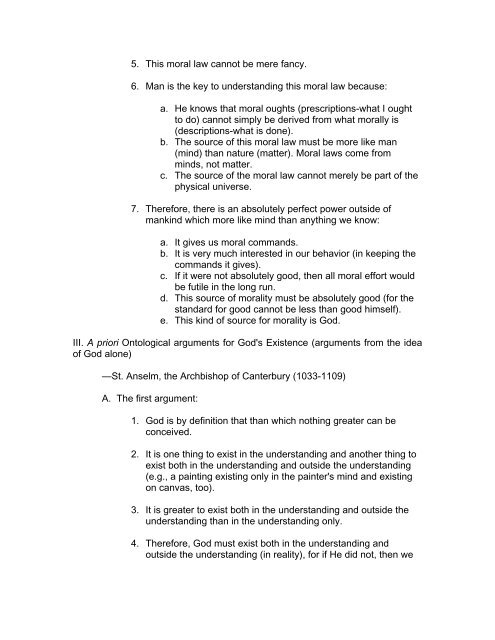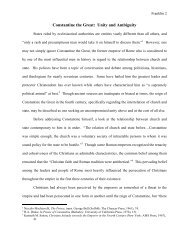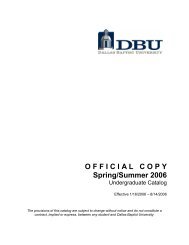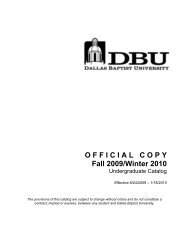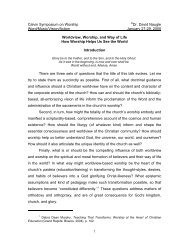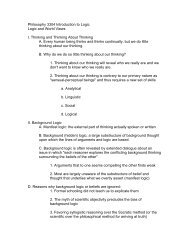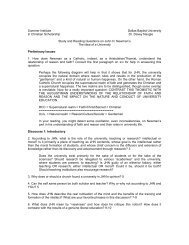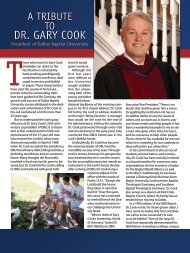Arguments for God's Existence
Arguments for God's Existence
Arguments for God's Existence
Create successful ePaper yourself
Turn your PDF publications into a flip-book with our unique Google optimized e-Paper software.
5. This moral law cannot be mere fancy.<br />
6. Man is the key to understanding this moral law because:<br />
a. He knows that moral oughts (prescriptions-what I ought<br />
to do) cannot simply be derived from what morally is<br />
(descriptions-what is done).<br />
b. The source of this moral law must be more like man<br />
(mind) than nature (matter). Moral laws come from<br />
minds, not matter.<br />
c. The source of the moral law cannot merely be part of the<br />
physical universe.<br />
7. There<strong>for</strong>e, there is an absolutely perfect power outside of<br />
mankind which more like mind than anything we know:<br />
a. It gives us moral commands.<br />
b. It is very much interested in our behavior (in keeping the<br />
commands it gives).<br />
c. If it were not absolutely good, then all moral ef<strong>for</strong>t would<br />
be futile in the long run.<br />
d. This source of morality must be absolutely good (<strong>for</strong> the<br />
standard <strong>for</strong> good cannot be less than good himself).<br />
e. This kind of source <strong>for</strong> morality is God.<br />
III. A priori Ontological arguments <strong>for</strong> <strong>God's</strong> <strong>Existence</strong> (arguments from the idea<br />
of God alone)<br />
—St. Anselm, the Archbishop of Canterbury (1033-1109)<br />
A. The first argument:<br />
1. God is by definition that than which nothing greater can be<br />
conceived.<br />
2. It is one thing to exist in the understanding and another thing to<br />
exist both in the understanding and outside the understanding<br />
(e.g., a painting existing only in the painter's mind and existing<br />
on canvas, too).<br />
3. It is greater to exist both in the understanding and outside the<br />
understanding than in the understanding only.<br />
4. There<strong>for</strong>e, God must exist both in the understanding and<br />
outside the understanding (in reality), <strong>for</strong> if He did not, then we


